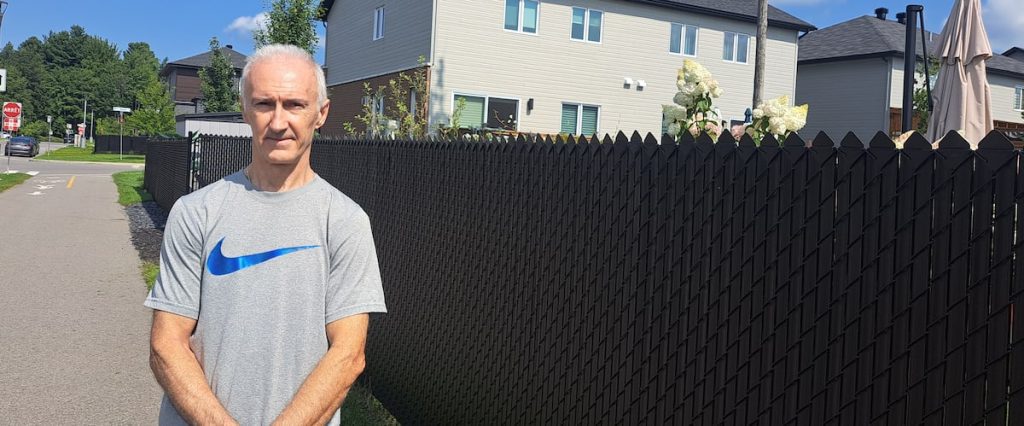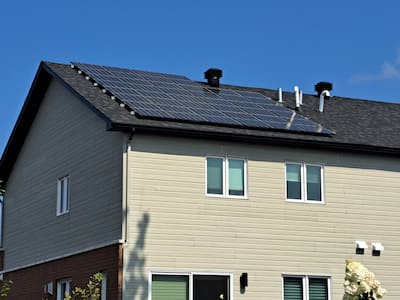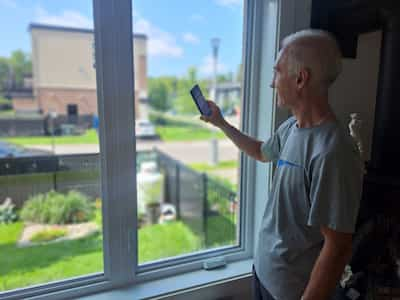
A family of four adults in Mascouche who live in a net zero house pay practically nothing in energy without having to change their consumption habits.
“Honestly, we haven’t really changed our consumption habits, because the house does everything,” explains Jose Legris, owner of Net Zero House, who lives with his wife and her two children (19 and 32). It produces enough energy depending on what we eat.
The semi-detached has 22 solar panels which supply the electricity used in the house. In a battery-free system the panels are placed on the sloping roof of the house.
Hydro does not require any additional installation in a batteryless system. Mr. Legris was forced to open an account in Hydro-Québec’s production department.
Hence the family members generate electricity by connecting to the grid and the surplus is sent to the hydro line.
“We are granted consumer credit in return, but use more credits in the winter because the panels produce less than in the summer,” explained Mr. Legris, who showed us around his home, which has two refrigerators, a freezer and even A spa.
A pattern
The Mascouchois Family House is a project of the Ecohabitation Organization, funded by Natural Resources Canada, in partnership with Owens Corning, an American company that develops and produces composite insulation, roofing and fiberglass, and the builder and promoter group TRÉMÄ.
“We applied the most profitable things to achieve high performance,” explains Ecohabitation director Emmanuel Cosgrove, noting that it is airtight, with increased insulation and triple glazed windows.
“All the equipment is already very efficient,” says Mr. Cosgrove, who talks about the home’s consumption of about 12,000 kilowatt hours (kWh) per year, while a standard code house consumes 25,000 kWh per year.
“It’s like I have a wall instead of windows at the level of insulation,” also illustrated Mr. Legris, who showed us the three layers of the window from his cellphone pointing to the glazing.
There are also LED lights throughout the house.
Mr. Cosgrove recalled that the federal government wants to build to net zero everywhere in Canada by 2040.
Mr Legris bought the house in April 2021 for around $500,000 (slightly more expensive than similar properties) because the panels were already installed.
So he pays Hydro $557 in 2022, with administrative costs of each bill accounting for half of the $557. A family’s surplus consumption costs about $300.
“For a property like that, without solar panels, I would pay $3,000 a year [son voisin paie près de 2800 $], added Mr Legris. Solar panels cost about $25,000 so the system will pay for itself in 8 to 10 years.
Towards autonomy?
Mr. Legris reveals, however, that he sometimes lacks energy. “I don’t have it Backup At the battery level, he recalled. If I had that, I could be 100% independent.
Mr Legris also plans to buy a battery system in the near future. “Batteries help when we run out of power and the surplus keeps going to hydro,” he said.








More Stories
Sportswear: Lolle acquires Louis Garneau Sports
REM is still innovative enough to foot the bill
A trip to the restaurant with no regrets for these customers